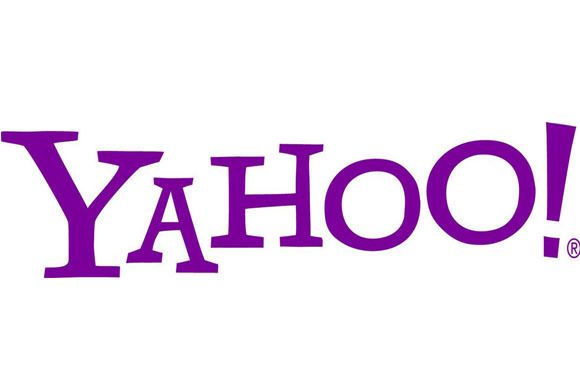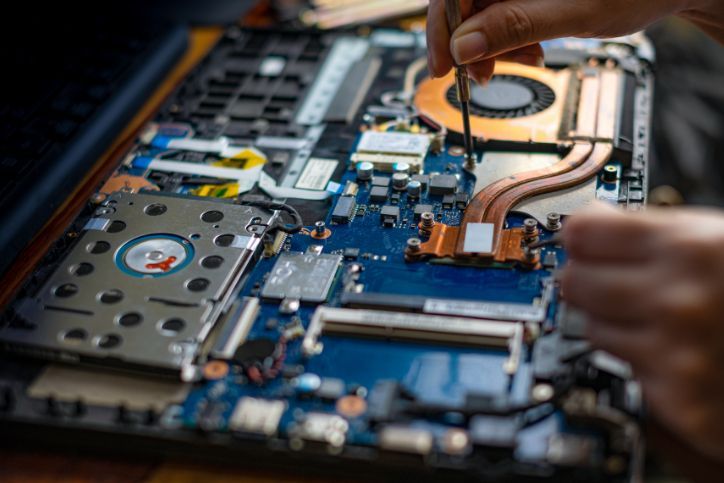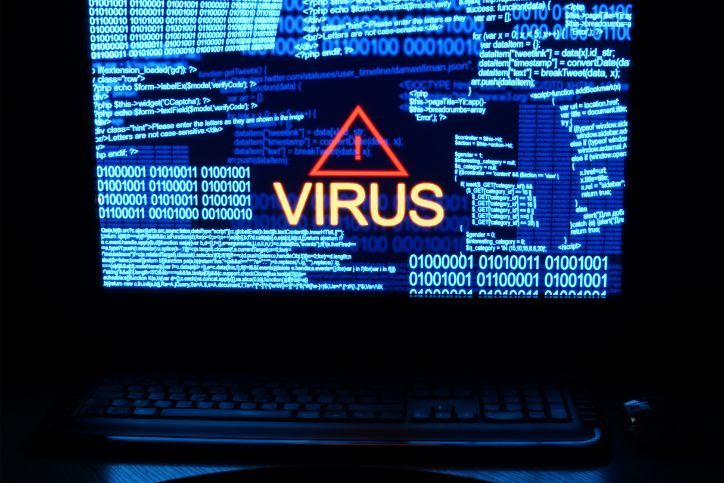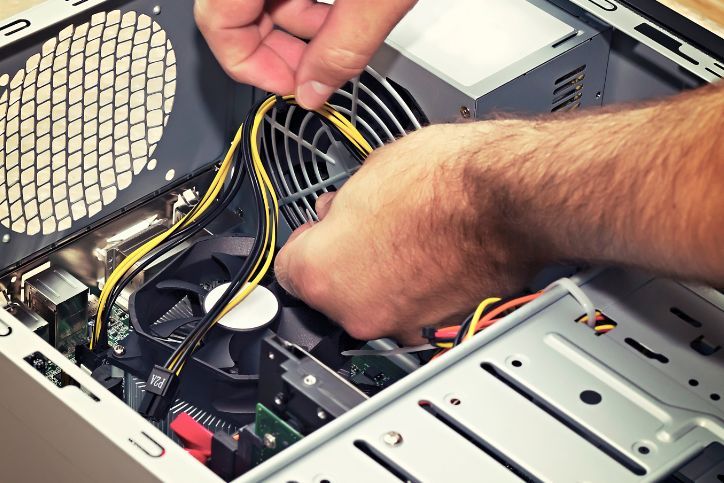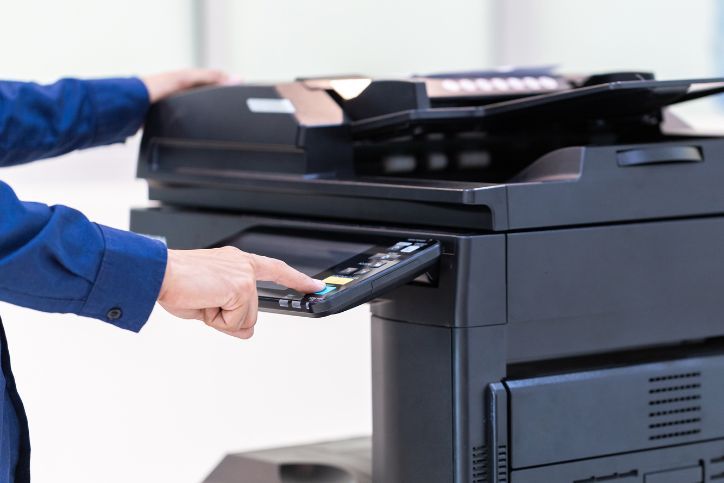Common Signs of External Hard Drive Failure You Shouldn’t Ignore
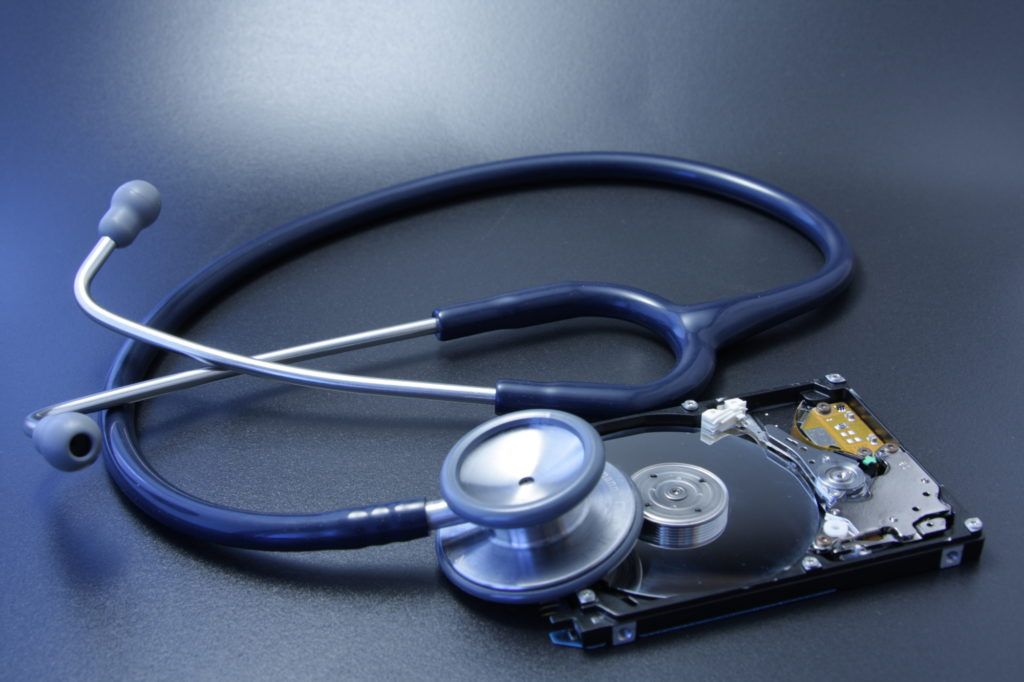
Data loss is a concerning issue that can cause businesses to lose a lot of profit and resources. In fact, the cost of lost data due to issues like hard drive failures can amount to as much as $1.9 million.
How do you prevent such a catastrophic event from occurring?
We have a few warning signs to look out for to help you prevent external hard drive failure.
Table of Contents
Toggle1. Slowdowns and Freezing
An early external hard drive failure symptom includes slowdowns and freezes when accessing the drive’s contents. Once in a while, experiencing these slow access times and occasional freezes can be annoying. But this is an indication that there’s a larger problem at hand.
This situation is when you start having the drive checked if there are some things causing these issues. It may be with the connectors where it may have some problems with data transmission or something far deeper that needs checking. In any case, be vigilant if you encounter this with your hard drive.
2. Crashes
Another sign is when you encounter hard drive crashes.
Crashes, by definition, is the termination of an ongoing process. This means your hard drive could fail to achieve whatever you tasked it to do, like writing or copying important files.
More often than not, an external hard drive crash is a sign of a virus. This requires some diagnostics with an anti-virus system to salvage your files before they get permanently corrupted.
Other problems like these are also caused by either frequent power failures or heat. Impact and other environmental hazards are also notable culprits for some of the symptoms for external hard drive failure.
3. Booting Errors
How to tell if the external hard drive is failing? One sign is when you connect your external hard drive to access your files and you encounter an error message that reads “hard drive not found” or “boot device missing.” This error is a scary symptom that could spell total system failure, meaning the hard drive may no longer be functional.
However, if you end up getting these messages frequently but not all the time, it might not be too late to get it repaired or salvage the files within. Also, consider that these errors could be a sign of a smaller issue, like wiring complications and connection problems.
4. Long Access Time
Another notable early external hard drive failure symptom is long access times. This slow processing period can be both concerning and annoying.
There are two possible causes for this.
One possible reason is that the cable connectors encountering problems with data transmission. The other possibility is the slow accumulation of bad sectors, an indication that the hard drive is getting old and beyond normal repair.
5. S.M.A.R.T. Warnings
The S.M.A.R.T. Monitoring System (Self-Monitoring, Analysis, and Reporting Technology) is present in current and new hard drives. The system keeps an eye on your hard drive for potential failures. The S.M.A.R.T. warning alerts you of impending failure for your hard drive, requiring immediate action.
Seeing these kinds of errors may depend on the compatibility of the hard drive and the computer. This means you may or may not get to see these warning messages. Other alerts get fixed behind the scenes each time your computer defrags itself or runs a system checkup.
6. Hard Drive Making Sounds
The hard drive failure signs are at their later stages when you start hearing sounds. At this point, you would notice strange clicking noises or regular beeps. These are dire warning signs that your hard drive is on the verge of failing.
The clicking sounds that you end up hearing at this point is best referred to as the “Click of Death”. Normally, hard drives only click once, wherein the read/write heads of the hard drive start moving from their resting position and will start to access the firmware on the drive.
The Click of Death occurs if something is wrong with these read/write heads or the firmware that they are unable to interact. This will cause the heads to return to the rest position and try again, causing the repeated clicking sounds. This issue may require the heads to get replaced as they have gone blind or the problem lies in a portion of the firmware.
Beeping sounds on your hard drive indicate issues in the spindle motor. The spindle motor is spinning the hard disk platters to allow the read/write heads to store and access data.
Sounds like these may necessitate a replacement of parts. The worst sounds that you would rather not hear is the screeching and grinding. The spindle or the heads are in trouble when you hear this, as it is either the motor is failing or the heads are grinding against the disk platters.
7. Hard Drive Not Spinning
This is a troubling symptom as the hard drive is not spinning at all. Two parts in the hard drive are causing this issue. This can be the spindle motor not running at all, or this could be due to the lack of power supplied to it.
In that case, the culprit falls on the printed circuit board or PCB, as it is responsible for powering the motor. If the PCB breaks down, the electricity flow needed will not reach.
Keep in mind that this is one of the more intricate hardware problems you could run into. Fixing this requires skilled professionals.
Prevent External Hard Drive Failure and Permanent Data Loss
When these warning signs of external hard drive failure appear, you need to take necessary measures to ensure that the data in the drive is safe and secured. These issues are due to a number of factors, but these issues will require capable professionals to help you in fixing them.
Don’t stop there. There are other hardware issues you could run into and this is where we can step in to help.
With this in mind, we offer a variety of services to help you with your computer repair needs. Get in touch with us and we’ll help you with your computer-related troubles.
Instant Quote
Get A FREE Quote IMMEDIATELY
Other Blogs You May Be Interested In
Categories
Satisfaction Guaranteed
Computer Repair You Can Trust


